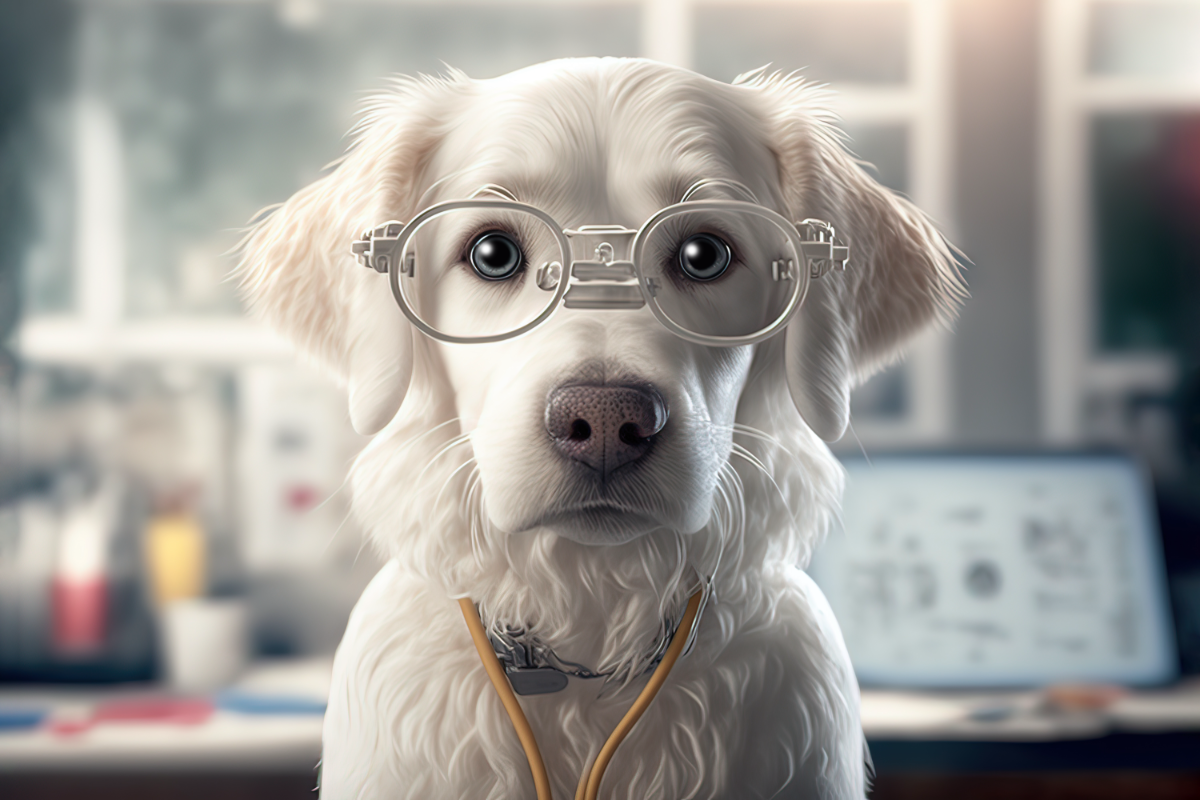Canine DNA Testing: What You Need To Know
Canine DNA testing goes far beyond breed identification. Some genetic detective work can help identify health risks and locate your dog's extended relatives.

Understandably, many pet owners are curious about their dog's breed, especially if they have a mixed-breed dog. The dog breed labels given to shelter dogs are often just a plain guess, and according to one exercise done by Julie Levy of the University of Florida, they're inaccurate "more than two-thirds of the time."
With this in mind, genetic testing, first and foremost, is a helpful means by which dog owners can get a much clearer idea of their pup's unique ancestry. However, breed composition is just the tip of the iceberg when it comes to the applications and insights of canine DNA testing.
Several companies offering these DNA tests for dogs, such as Embark, Wisdom Panel, and AncestryDNA (of Ancestry.com), tout a wider range of insights into your pet's health and market their services as a way to level up and fine-tune pet parenting today. For example, beyond the basic breed identification, Embark sells a genetic test for determining your dog's age and birthday as well as more specified tests for digestive and oral health concerns.
The Upsides of Canine DNA Testing
Whether one is driven by pure curiosity satisfaction or particularized canine health inquiries, dog DNA testing can unlock a wealth of valuable information:
- Breed Identification: This is more than just securing a correct 'label.' Knowing your dog's breed can, in turn, help pet parents understand their dog’s behavior, temperament, and other trait information such as "coat color and length, body size, shedding, eye color" and more!
- Health Screening: Genetic tests can screen "for over 150 genetic diseases that your dog may be 'at risk' for or a 'carrier' of according to their breed mix." This can provide insights into proactive healthcare planning for your canine companion by offering awareness, in advance, of what specific symptoms to watch for as they age.
- Dog Ancestry and Relatives: DNA tests can trace a dog's ancestry and pinpoint its geographic origins, which, for all the history buffs out there, can uncover a host of information about the rarity, legacy, and cultural significance of your dog's breed(s). Plus, it's always an intriguing prospect to be able to connect your dog with some long-lost genetic relatives!
- Weight and Nutritional Guidance: Dog diets are not universal. Therefore, DNA results can help owners specify the distinct nutritional needs of their canine companion based on breed composition, size, etc. Results can also help predict a dog's healthy adult weight, which is especially useful when you're testing a puppy. (Note: all dietary recommendations garnered from home DNA test results should be double-checked by a veterinarian).
Considerations and Limitations
On the whole, the canine DNA testing process seems relatively straightforward (see below) but there are a few particulars that dog owners should consider before getting started.
@chriyen Testing yuji’s dna with @Embark Dog DNA Test was so quick and simple! 🐕 what are our breed guesses???! 🫢 #fyp #dogsoftiktok #embarkvet #IDmydog #doggyDNA
♬ original sound - Ghibli Shorts
- Accuracy: While canine DNA tests are generally reliable, they are not infallible. There is "room for error and bias" because, unlike DNA tests for humans, canine DNA testing doesn't have any official regulation. At the moment, The Harmonization of Genetic Testing for Dogs is in the process of trying to establish some unified standards but, in the meantime, "we have to trust the claims from companies" that sell the tests.
- Privacy: Review the privacy policies of the DNA testing company regarding how your dog's genetic information will be used and stored. Collected DNA samples may be used for scientific research regarding "ways to advance the prevention, detection, progression, and treatment of serious canine health conditions," which can, hopefully, help future generations of dogs.
- Cost: The cost of canine DNA tests can vary, so it’s prudent to choose a test that provides the scope of information and/or specificity of information you desire within your budget. Most companies that sell home tests fall between $100-$200. It may also be helpful to check with the testing services at your vet to compare costs.
- Veterinary Advice: Genetic health screenings should complement, not replace, regular veterinary care. Always be sure to consult with a veterinarian to interpret and compare the results you receive to make informed health decisions for your pet. After all, the accuracy of the results determines the accuracy of the advice. Collaborative, cross-referenced information is key regarding the future of dog health!
So, what's the deal with canine DNA testing? Ultimately, it’s a powerful (and increasingly trendy) tool that gives curious pet parents access to a myriad of insights into their dog's genetics. Not to mention, it plays a significant role in the growth of dog health research! The larger the databases of pet DNA become, the more accurate and productive their findings will be for the dogs of today (and tomorrow!)
Though direct-to-consumer canine DNA testing is certainly not without criticism, many dog lovers have been pleased with their results (and dog family reunions), deepening the bond between them and their canine companions – something that the Roch Society is always keen on celebrating.
Do you know your dog's breed composition? How did you find that out? Let us know by dropping a comment below!


